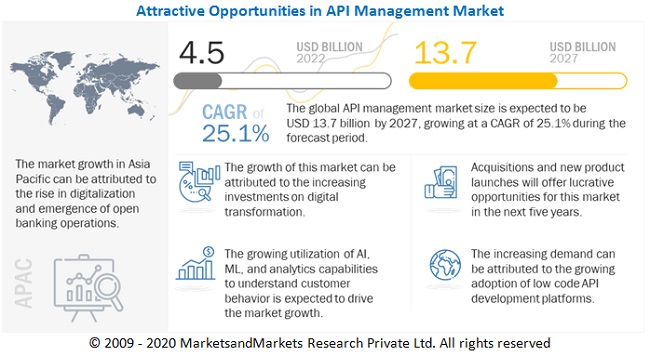
The API Revolution: How the API Economy is Transforming the Business Landscape
Explore the API economy's impact on innovation, business capabilities, and collaboration, unlocking growth and success in the digital world.
27 Apr


In today’s fast-paced digital landscape, the API economy has emerged as a driving force behind the seamless integration and evolution of applications and services. At its core, the API (Application Programming Interface) economy refers to the increasingly interconnected ecosystem of businesses that create, consume, and capitalize on APIs to improve efficiency, foster innovation, and generate revenue. As digital building blocks, APIs enable diverse software applications to communicate and exchange data, creating a vibrant marketplace of versatile, reusable components.
The proliferation of Software as a Service (SaaS) and enterprise solutions has significantly amplified the role of APIs in today’s business environment. SaaS companies and enterprises alike leverage APIs to facilitate seamless interoperability between their platforms and a myriad of third-party systems, creating powerful synergies and enhanced capabilities. By integrating APIs, businesses can extend the functionality of their existing software, automate workflows, and streamline data exchange, all while minimizing the need for extensive custom development. Furthermore, APIs enable companies to tap into the expertise and innovation of other industry players, fostering a collaborative ecosystem that drives growth and competitive advantage. Ultimately, the strategic use of APIs empowers SaaS and enterprise organizations to deliver scalable, flexible, and cutting-edge solutions tailored to the ever-evolving needs of their customers.
The API market has experienced exponential growth in recent years, as more businesses recognize the value of APIs in fueling innovation and driving digital transformation. As of 2022, the global API market size was valued at around $4.5 billion, with projections estimating it could reach approximately $13.7 billion by 2027, growing at a CAGR of 25.1% during the forecast period (Source: Markets and Markets).

This tremendous expansion is indicative of the rising demand for API-driven solutions across various industries. Among the key players in this thriving market are industry behemoths such as Google, Amazon Web Services (AWS), Microsoft, IBM, and Salesforce, as well as smaller yet innovative API providers like Twilio, Stripe, and Plaid. These companies are instrumental in developing and offering a wide array of APIs, ranging from cloud services and payment processing to communication and data analytics, catering to the diverse needs of businesses in the API economy.
APIs also serve as indispensable tools for small businesses, startups, and independent software vendors (ISVs) seeking to gain a competitive edge in the market while optimizing costs and driving revenue growth. By leveraging APIs, these organizations can operate at levels previously reserved for larger enterprises with deeper pockets. This enables them to develop and deploy feature-rich applications and solutions rapidly, without incurring the expenses associated with building complex systems from scratch. Furthermore, APIs facilitate the integration of specialized third-party services, allowing smaller players to offer their customers a more comprehensive and competitive product suite. By embracing the API economy, small businesses, startups, and ISVs can harness the power of collaboration and shared innovation, ultimately positioning themselves as agile, adaptive, and customer-centric organizations capable of thriving in a rapidly evolving digital landscape.
API’s are integral in connecting disparate systems, automating complex tasks, and increasing scalability across a multitude of use cases in today’s cloud-first computing environment. Notable examples include:
- CRM and Marketing Automation: APIs allow businesses to connect their customer relationship management (CRM) systems, such as Salesforce or HubSpot, with marketing automation platforms like Marketo or Mailchimp. This integration enables the seamless exchange of customer data, automating lead nurturing processes, and improving sales and marketing alignment.
- E-commerce and Payment Processing: Online retailers often use APIs to integrate payment gateways like Stripe, PayPal, or Square with their e-commerce platforms, streamlining the checkout process and enhancing the customer experience.
- Social Media and Analytics: API’s enable businesses to connect their social media platforms, such as Twitter or Facebook, with analytics tools like Google Analytics or Sprout Social. This integration allows for automated data collection, in-depth analysis of social media performance, and better-informed decision-making.
- Communication and Collaboration: Companies can use APIs to link their communication and collaboration tools, like Slack, Microsoft Teams, or Asana, with other applications such as Google Workspace or Trello. This enhances productivity by enabling team members to access critical information and resources without leaving their preferred communication platform.
- IoT and Smart Devices: APIs are crucial in connecting Internet of Things (IoT) devices and smart home systems, such as Amazon Alexa, Google Home, or Nest thermostats. These integrations allow for seamless device communication and automation, creating a more interconnected and efficient ecosystem.
- Cloud Services and Scalability: APIs enable businesses to access cloud services like AWS, Microsoft Azure, or Google Cloud Platform, providing a scalable infrastructure that can quickly adapt to changing demands. This allows companies to optimize resource usage, reduce costs, and accommodate rapid growth.
These examples illustrate the versatility and power of APIs in connecting disparate systems, automating tasks, and increasing scalability, all while improving efficiency and fostering innovation.

For companies looking to harness the potential of APIs and capitalize on the opportunities within the API economy, getting started may seem daunting, but it doesn’t have to be. The first step is to identify specific business needs and objectives that can be addressed through API integration, such as improving customer experience, automating tasks, or enhancing product offerings. Next, research and evaluate the available APIs in the market that align with these objectives, taking into consideration factors such as ease of integration, pricing, support, and reliability. Once the appropriate APIs have been selected, businesses should develop a well-defined implementation plan, outlining the required resources, timelines, and potential challenges. Collaboration between technical and non-technical teams is essential during this stage to ensure smooth integration and alignment with business goals. Finally, it is crucial to continually monitor and assess the performance of integrated APIs, gathering feedback and making data-driven adjustments as needed to maximize the benefits and ensure ongoing success in the API economy. By following these steps, companies can confidently embark on their API journey, unlocking new possibilities for growth and innovation.
Over the past decade APIs have emerged as the linchpin of the modern digital ecosystem, offering businesses of all sizes unparalleled opportunities to enhance their capabilities, optimize operations, and foster innovation. The API economy has transformed the way organizations collaborate and compete, enabling them to access cutting-edge functionalities, streamline complex tasks, and scale efficiently. By integrating APIs into their core strategies, businesses can create seamless, interconnected systems that not only improve customer experiences but also drive revenue growth and maintain a competitive advantage. As the API market continues to expand, we can expect even more groundbreaking developments and cross-industry collaborations that will shape the future of the digital landscape. Embracing the API economy is no longer optional; it is a necessity for organizations aspiring to thrive in an increasingly interconnected and fast-paced digital world.
Recent Articles
Avoiding the Five Most Common Mistakes in Agentic AI Projects
How Agentic AI is Redefining Business Process Management
Measuring the ROI of Human-Centric Document Processing Automation
Better Together: Humans and Artificial Intelligence in Healthcare Records Processing
Designing Enterprise Workflows for Cross-Cloud Integration
